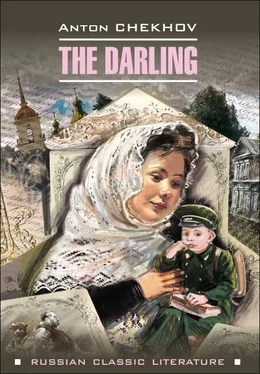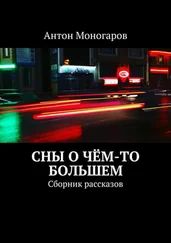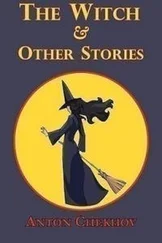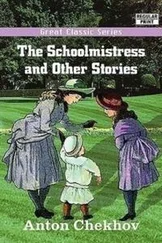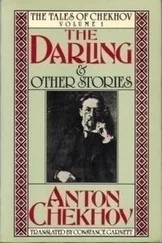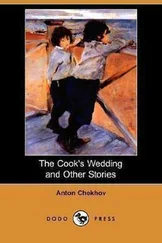Антон Чехов - The darling / Душечка. Сборник рассказов
Здесь есть возможность читать онлайн «Антон Чехов - The darling / Душечка. Сборник рассказов» — ознакомительный отрывок электронной книги совершенно бесплатно, а после прочтения отрывка купить полную версию. В некоторых случаях можно слушать аудио, скачать через торрент в формате fb2 и присутствует краткое содержание. Год выпуска: 2019, ISBN: 2019, Издательство: Литагент Каро, Жанр: Классическая проза, Русская классическая проза, Прочая научная литература, на английском языке. Описание произведения, (предисловие) а так же отзывы посетителей доступны на портале библиотеки ЛибКат.
- Название:The darling / Душечка. Сборник рассказов
- Автор:
- Издательство:Литагент Каро
- Жанр:
- Год:2019
- ISBN:978-5-9925-1149-9
- Рейтинг книги:5 / 5. Голосов: 1
-
Избранное:Добавить в избранное
- Отзывы:
-
Ваша оценка:
- 100
- 1
- 2
- 3
- 4
- 5
The darling / Душечка. Сборник рассказов: краткое содержание, описание и аннотация
Предлагаем к чтению аннотацию, описание, краткое содержание или предисловие (зависит от того, что написал сам автор книги «The darling / Душечка. Сборник рассказов»). Если вы не нашли необходимую информацию о книге — напишите в комментариях, мы постараемся отыскать её.
The darling / Душечка. Сборник рассказов — читать онлайн ознакомительный отрывок
Ниже представлен текст книги, разбитый по страницам. Система сохранения места последней прочитанной страницы, позволяет с удобством читать онлайн бесплатно книгу «The darling / Душечка. Сборник рассказов», без необходимости каждый раз заново искать на чём Вы остановились. Поставьте закладку, и сможете в любой момент перейти на страницу, на которой закончили чтение.
Интервал:
Закладка:
“Ach! I’ll give you twenty-five roubles to-morrow if you’ll only hold your tongue!” he said irritably.
“I must take off my things!” she said, crying. “I can’t talk seriously in my fur coat! How strange you are!”
He helped her off with her coat and overboots, detecting as he did so the smell of the white wine she liked to drink with oysters (in spite of her etherealness she ate and drank a great deal). She went into her room and came back soon after, having changed her things and powdered her face, though her eyes still showed traces of tears. She sat down, retreating into her light, lacy dressing-gown, and in the mass of billowy pink her husband could see nothing but her hair, which she had let down, and her little foot wearing a slipper.
“What do you want to talk about?” she asked, swinging herself in a rocking-chair.
“I happened to see this;” and he handed her the telegram.
She read it and shrugged her shoulders.
“Well?” she said, rocking herself faster. “That’s the usual New Year’s greeting and nothing else. There are no secrets in it.”
“You are reckoning on my not knowing English. No, I don’t know it; but I have a dictionary. That telegram is from Riss; he drinks to the health of his beloved and sends you a thousand kisses. But let us leave that,” the doctor went on hurriedly. “I don’t in the least want to reproach you or make a scene. We’ve had scenes and reproaches enough; it’s time to make an end of them … This is what I want to tell you: you are free, and can live as you like.”
There was a silence. She began crying quietly.
“I set you free from the necessity of lying and keeping up pretences,” Nikolay Yevgrafitch continued. “If you love that young man, love him; if you want to go abroad to him, go. You are young, healthy, and I am a wreck and haven’t long to live. In short … you understand me.”
He was agitated and could not go on. Olga Dmitrievna, crying and speaking in a voice of self-pity, acknowledged that she loved Riss, and used to drive out of town with him and see him in his rooms, and now she really did long to go abroad.
“You see, I keep nothing from you,” she added, with a sigh. “My whole soul lies open before you. And I beg you again, be generous, get me a passport.”
“I repeat, you are free.”
She moved to another seat nearer him to look at the expression of his face. She did not believe him and wanted now to understand his secret meaning. She never did believe any one, and however generous were their intentions, she always suspected some petty or ignoble motive or selfish object in them. And when she looked searchingly into his face, it seemed to him that there was a gleam of green light in her eyes as in a cat’s.
“When shall I get the passport?” she asked softly.
He suddenly had an impulse to say “Never”; but he restrained himself and said:
“When you like.”
“I shall go only for a month.”
“You’ll go to Riss for good. I’ll get you a divorce, take the blame on myself, and Riss can marry you.”
“But I don’t want a divorce!” Olga Dmitrievna retorted quickly, with an astonished face. “I am not asking you for a divorce! Get me a passport, that’s all.”
“But why don’t you want a divorce?” asked the doctor, beginning to feel irritated. “You are a strange woman. How strange you are! If you are fond of him in earnest and he loves you too, in your position you can do nothing better than get married. Can you really hesitate between marriage and adultery?”
“I understand you,” she said, walking away from him, and a spiteful, vindictive expression came into her face. “I understand you perfectly. You are sick of me, and you simply want to get rid of me, to force this divorce on me. Thank you very much; I am not such a fool as you think. I won’t accept the divorce and I won’t leave you – I won’t, I won’t! To begin with, I don’t want to lose my position in society,” she continued quickly, as though afraid of being interrupted. “Secondly, I am twenty-seven and Riss is only twenty-three; he’ll be tired of me in a year and throw me over. And what’s more, if you care to know, I’m not certain that my feeling will last long … so there! I’m not going to leave you.”
“Then I’ll turn you out of the house!” shouted Nikolay Yevgrafitch, stamping. “I shall turn you out, you vile, loathsome woman!”
“We shall see!” she said, and went out.
It was broad daylight outside, but the doctor still sat at the table moving the pencil over the paper and writing mechanically.
“My dear Sir … Little foot.”
Or he walked about and stopped in the drawing-room before a photograph taken seven years ago, soon after his marriage, and looked at it for a long time. It was a family group: his father-in-law, his mother-in-law, his wife Olga Dmitrievna when she was twenty, and himself in the role of a happy young husband. His father-in-law, a clean-shaven, dropsical privy councillor, crafty and avaricious; his mother-in-law, a stout lady with small predatory features like a weasel, who loved her daughter to distraction and helped her in everything; if her daughter were strangling some one, the mother would not have protested, but would only have screened her with her skirts. Olga Dmitrievna, too, had small predatory-looking features, but more expressive and bolder than her mother’s; she was not a weasel, but a beast on a bigger scale! And Nikolay Yevgrafitch himself in the photograph looked such a guileless soul, such a kindly, good fellow, so open and simple-hearted; his whole face was relaxed in the naїve, good-natured smile of a divinity student, and he had had the simplicity to believe that that company of beasts of prey into which destiny had chanced to thrust him would give him romance and happiness and all he had dreamed of when as a student he used to sing the song “Youth is wasted, life is nought, when the heart is cold and loveless.”
And once more he asked himself in perplexity how he, the son of a village priest, with his democratic bringing up – a plain, blunt, straightforward man – could have so helplessly surrendered to the power of this worthless, false, vulgar, petty creature, whose nature was so utterly alien to him.
When at eleven o’clock he put on his coat to go to the hospital the servant came into his study.
“What is it?” he asked.
“The mistress has got up and asks you for the twenty-five roubles you promised her yesterday.”
TALENT
An artist called Yegor Savvitch, who was spending his summer holidays at the house of an officer’s widow, was sitting on his bed, given up to the depression of morning. It was beginning to look like autumn out of doors. Heavy, clumsy clouds covered the sky in thick layers; there was a cold, piercing wind, and with a plaintive wail the trees were all bending on one side. He could see the yellow leaves whirling round in the air and on the earth. Farewell, summer! This melancholy of nature is beautiful and poetical in its own way, when it is looked at with the eyes of an artist, but Yegor Savvitch was in no humour to see beauty. He was devoured by ennui and his only consolation was the thought that by to-morrow he would not be there. The bed, the chairs, the tables, the floor, were all heaped up with cushions, crumpled bed-clothes, boxes. The floor had not been swept, the cotton curtains had been taken down from the windows. Next day he was moving to town.
His landlady, the widow, was out. She had gone off somewhere to hire horses and carts to move next day to town. Profiting by the absence of her severe mamma, her daughter Katya, aged twenty, had for a long time been sitting in the young man’s room. Next day the painter was going away, and she had a great deal to tell him. She kept talking, talking, and yet she felt that she had not said a tenth of what she had wanted to say. With her eyes full of tears, she gazed at his shaggy head, gazed at it with rapture and sadness. And Yegor Savvitch was shaggy to a hideous extent, so that he looked like a wild animal. His hair hung down to his shoulder-blades, his beard grew from his neck, from his nostrils, from his ears; his eyes were lost under his thick overhanging brows. It was all so thick, so matted, that if a fly or a beetle had been caught in his hair, it would never have found its way out of this enchanted thicket. Yegor Savvitch listened to Katya, yawning. He was tired. When Katya began whimpering, he looked severely at her from his overhanging eyebrows, frowned, and said in a heavy, deep bass:
Читать дальшеИнтервал:
Закладка:
Похожие книги на «The darling / Душечка. Сборник рассказов»
Представляем Вашему вниманию похожие книги на «The darling / Душечка. Сборник рассказов» списком для выбора. Мы отобрали схожую по названию и смыслу литературу в надежде предоставить читателям больше вариантов отыскать новые, интересные, ещё непрочитанные произведения.
Обсуждение, отзывы о книге «The darling / Душечка. Сборник рассказов» и просто собственные мнения читателей. Оставьте ваши комментарии, напишите, что Вы думаете о произведении, его смысле или главных героях. Укажите что конкретно понравилось, а что нет, и почему Вы так считаете.
